
Managing Knowledge Toward Wisdom | Reading Room BY ROBERT GALVIN |
ROBERT GALVIN
Back in 1940, Robert Galvin quit college and joined his father's business as a humble stock clerk. The company: Motorola, whose name Paul Galvin had created in 1930 by combining "motor" with "Victrola" (phonograph), because he was manufacturing the first commercially successful car radios. As early as 1948, Robert was pushing his father to go into transistors, which Bell Labs had just invented. Galvin did, and once Robert assumed the helm in 1956, he continued to pursue leading-edge technology. Some 40 years later he witnessed the opening of the company's Florida pager plant, where the manufacturing was handled by robots. That year Motorola won the first Malcolm Baldridge National Quality Award. Over the years, competition, especially with Japanese firms, was fierce. To prevail, Galvin knew he had to rely on every employee: "Just as thousands of Egyptian laborers—and not their pharaohs—built the pyramids, so do the bench technologists build whatever there is for us to 'manage.' Conversely, failure results from holding these people back." Galvin didn't supress his "laborers"; instead, feedback and two-way communication were crucial. "Communication does not start with what 'I' have to say," he wrote in 1996. "Rather, it starts with the other person. It starts with what I hear." To keep ahead of the competition, Galvin required his R& D people to create detailed "technology road maps," which charted the potential of products ten years into the future. These maps directed them to discontinue consumer products such as televisions in the mid-1970s. Motorola shifted its focus to the semi-conductor business and advanced electronics. Galvin calls such changes self-renewal. "Renewal is a great word," he says. "It is the driving thrust of our corporation. It comes trippingly off the tongues of our people." In terms of his own personal development, Galvin has found that teaching others helps him learn. Knowledge is obviously important in making management decisions; however, in the following selection, Galvin cautions that "we can overwhelm ourselves with too much knowledge on most subjects." Managing Knowledge Toward Wisdom
Robert Galvin The challenge of managing knowledge portends that this is the "age of the mind." Advancing societies have matured through many ages. Centuries ago, the "age of the crafts." More recently, the "age of industry." Now, the "age of the mind." Of course, crafts will continue to fill important roles. Industry will always be essential. And the imaginative and sensible use of the mind has been evident through all ages. But the "age of the mind" is ever more promising and demanding. Tools have keyed development through each Age. Early tools enhanced the craftsman and mechanized tools and instruments drove industry. Information processing hardware, software and communications are the new tools for further managing knowledge and intellectual capital and are a worthy challenge to manage unto themselves in this the "age of the mind." But the mastery of the use of these tools, as vital and achieving as it is becoming, is more the form than the substance of the ultimate wisdom that we seek from managing knowledge and intellectual capital. A few months ago, I was privileged to speak to a scholarly audience on the subject of knowledge. The idiom lifelong learning was referenced in early presentations. I elected to play on words. "Lifelong learning is important," I said, "but it implies a ponderous pace suggesting we have abundant years to achieve learning. Obviously that was not intended. But our expectation should be timely mastery, again and again." How best do we master? Many of us think that teaching is the best of the learning processes. In fact, I played on those words also, referring to the outmoded phrasing "I'll learn you a lesson," wherein the term learn was employed as the synonym for the word teach. Indeed, we learn better by teaching and we must teach others to do similarly. How could our business be truly competitive if the Chief Executive Officer of any company with whom we competed was smarter than I was? I come to this challenging issue of striving to master the managing of knowledge as a business person. The challenge of doing so is no more nor less in business than other sophisticated fields. It is simply one of the fields wherein the worth and degree of mastery is substantially measurable as the business thinker and doer personally practices and applies development principles both timely and consistently. This paper suggests a dozen rewarding developmental endeavors. TRAINING FOR SUCCESS Years ago business was faced again with one of those periods of struggle to improve competitive competence. In raising the question to myself, (How can we be more competitive?), I went through the conventional business analysis questions of what function and what cost we could modify in order to make our institution more competitive. Those conventional questions and answers were insufficiently satisfying. Ultimately I began to think in athletic analogies: I am a competitor. At my modest athletic ability I have competed in tennis and in downhill racing. I didn't always win. I realized for the most part, those who were superior to me were better trained. The thought pattern was readily transferable to business. How could our business be truly competitive if the Chief Executive Officer of any company with whom we competed was smarter than I was? How could we compete if the President of another competitor was more talented than ours? As I reviewed the responsibility of our people, it became obvious that in order to be competitive, we had to be superior counterpart to counterpart. When I took this thesis to my senior associates, they readily agreed that it would be difficult if I wasn't as capable as our brightest competitive chief executive officer and as a matter of fact they readily agreed I was not. So, yes, I was going to need a mentor. It was a little less appealing for them to imagine that they too would need a mentor to measure up to. They could see that this might evolve to where there would be major considerations of extensive training costs and time. Early on, they established their position that if there is to be an education program, we must find a way of doing it at no impact on budget and no demand on people's time. Obviously, an impossibility. When we had discussed the subject sufficiently, I made the decision; we would have an extensive education and training program. I was convinced that we could train in sequences and on subjects of timely utility that wouldn't actually cost us because our improved talents would save us other operating expenses and gain us other business benefits virtually contemporaneous to the training. Thus was born the intention and ultimately the execution of an expansive worldwide education program to impart knowledge by Motorola University. The managing of knowledge inescapably involves the process of adding to knowledge in order to employ it. CREATIVITY: A VOCATIONAL SKILL Business knowledge is used frequently to make decisions. Most managers presume that their major responsibility is to make decisions. Deciding is an act of judgment. Judging is one of two key mental processes. The other is creativity. Early on, I developed a curiosity about creativity. Others probably have had experience such as I had in school and college where a teacher would assign a creative theme for homework. I recall asking those teachers for an explanation as to how one goes about generating the creative ingredient to give the theme its substance? Universally, I would be finessed by such comments as "just start to work on it, the light will go on, in the middle of the night an idea may pop into your mental processes, note it so you don't forget it by morning. Ideas just come." Such comments were hardly helpful. I continued to harbor my curiosity. In my middle twenties, I came upon a newspaper advertisement headline. "Buy this book and you can make yourself creative." You can imagine that my initial reaction was that this was a comeon. But when I read further that the book Your Creative Power was written by a distinguished professional with an impeccable reputation, Alex Osborn, then the head of one of the more respected American advertising agencies, I knew he could not risk his and his firm's reputation. So I bought the book, devoured its 300 pages because it was entertaining and instructive, and distilled 13 integrated steps of thinking creatively. I memorized them and practiced them with my associates and on my own. I discovered after a short period that I was coming up and people around me were caused to come up with more ideas than was our prior disposition. We were achieving a special mastery of sorts. I came to understand that creativity, as a vocational skill, can be learned and taught. Specific guides, steps and principles readily generate ideas. I now avow that an institution like ours, when it fully dedicates itself to do so, can train the aggregate of our leader-thinkers, which means more than the majority of our people, to being many times more creative than we are today. The value of ideas is obvious. The value of ideas—primary intellectual capital—is central to the purpose of this publication of knowledge related papers. There is an inherent relationship between the creativity process and the judgment process. A demonstrative anecdote occurred when a distinguished senior-age, faculty member, inventor-scientist willingly assumed an Active President role of the university whose board I chaired. He took on an interim assignment as acting president between the unanticipatable resignation of a prior president and the recruiting of a full-time president. Henry would visit with me about once a month. On one of those occasions he had an extensive agenda. He premised the seventh item on the agenda by saying, "Bob, I'm going to need your direct support on the decision that must flow from this issue. As just the acting president and continuing faculty member, I will need the support of the board chairman in authorizing the choice between our two unappealing options." As Henry introduced the matter, I realized what my job was going to have to be. I was going to have to have at least a third idea. I immediately went into a multiplexing mode, meaning I listened thoughtfully to what he was saying but simultaneously began to have ideas about the university. I didn't know yet what his topic was going to be. I just started to have university related ideas. I was using an Osborn approach of tuning up my mind, seeking quantity of ideas. As he spoke further, his area of concern became evident. So, I shifted my focus. When he finished his review, I had to agree that the two offerings that were presumed to be self-limiting were objectionable. Then I said, "Henry, let's put those aside. Let's engage in a purposeful creative process between us here and now as you have done so often in the laboratory and elsewhere. Let me start by launching into an idea." I realized as I uttered the first two or three sentences that I was talking my way into a veritable intellectual cul de sac. But I wasn't concerned about judging that. I simply finished that thought in order to have started the process of mutual creative thinking. While that first thought was being expressed, a second idea was brewing (which now becomes our fourth idea). It wasn't very good either. But that led me to a fifth idea. I could tell as I finished expressing that one—which wasn't half bad—that Henry was becoming impatient with my monologue. New thoughts were beginning to click with him as he said "Well, then we could probably consider this," and his became the sixth idea. We traded thoughts back and forth well beyond 10 or 11 ideas between us. At that point he interrupted the process and said, "Thank you. I'll take the issue back to my office. I now know that I will come up with other better and defendable options. I'll let you know what my decision is and I'm sure it will be more than tolerable to the university community." Notice that without having the availability of all of the potentially useful ideas it is not possible to make the best decision. Decision making is not simply making a choice between a few static suggestions that others may have conjured. The decision making function must include first creating the options worthy of consideration. GOING AGAINST THE CROWD: THE ROLE OF COUNTERINTUITIVENESS Creativity has a bearing on counterintuitiveness. Another book that has had a profound influence on me was the autobiography of Bernard Baruch. Baruch was a Wall Street investment banker in the United States early in the century. But, he was more than that. He was an advisor, even to Presidents of the U. S. In fact, on some occasions he would schedule to sit on certain park benches in New York or Washington, DC. People would seek him out as he would "hold court" responding to their questions or requests for advice. One of his principles was, if the crowd was going one way he should seriously consider going a very different way. To begin with, isn't that natural for someone in the stock and bond business? If everyone else is selling, maybe he should be buying. If everyone else is buying, maybe he should be selling. But his thesis was much more pervasive. He applied it to virtually everything. He was a role model for thinking to me. I began to apply the same thinking methodology. Whenever I saw an industry move or a collective set of thinking on the part of any group of people, I challenged myself that the more likely way that could add value would be quite different than other collective intuitions. This was not intended to be contrarian. Rather, the practice was and is intended to search for alternatives and opposites that may as a consequence of their lack of apparentness be overlooked as the more valuable directions in which to go. In fact, the intuition of my associates was that we couldn't afford the time and the money for education. The counterintuitive was that it wouldn't cost either net time or money because we would save both by timely usable instruction and we would be the better for it. In fact, within two years after our training and education program was well launched, people who were unaware of the initial discussions would meet me in the halls, speak of how immediately valuable training was and express their hope that I would not fail to support it liberally. When one searches for the counterintuitive, one is—in a way—searching for the essence. Most subjects are encumbered with all manner of facts and factors. In fact, we can overwhelm ourselves with too much knowledge on most subjects. So there must be a synthesis and a distillation process as we search for the more significant elements, the heart of the matter, the pivot point, the essence. With the distillation and discernment of the essence of the subject at hand, most if not all of the other related "knowledge" may be deemphasized. Choice and action then can be engaged most confidently. THE PRACTICE OF RECOMMENDING How do we practice the application of knowledge so as to ultimately manage it and use it better? There are ways. One that is particularly useful is to make recommendations. Early in our careers, we typically are in the presence of those with more experience and authority. If they are able leaders they will probably provide us with opportunities to be heard, to make recommendations, to allow us to stand for our choice. If we are not privileged to articulate our position, we can at least make a commitment to ourselves as to what our recommendation is on the issue at hand, including how creative we are being. Either way we can test ourselves. What do we learn as we see the events that play themselves out? Do we see that the recommendation of another was really the right answer? Do we see that the one we made which may or may not have been similar to the ultimate decision was more favorable? This practice adds to our confidence and talent in ultimately assuming more responsibility. THE QUALITY OF LEADERSHIP AND THE LEADERSHIP OF QUALITY A consequence of our recommendations and decisions can, to a significant degree, be measured in the manner they help take our institution elsewhere. In our company, the most demanding part of the definition of leadership is "a leader is someone who takes us elsewhere or causes us to do otherwise." This calls for people to have achieved a confidence level that gives them backbone—a willingness to be bold. Boldness is essential. It is one of the ultimate tests of whether or not we have processed and used knowledge wisely. Quality in all of its meanings is important. The quality processes that we conceive from the knowledge we possess are critical to achievements. In business for the most part, we seem to first apply quality techniques to operations activities. But the future of quality as a bigger factor in business is going to be the measure of the quality of thought applied. Operating quality processes and quality management are essential competences in all institutions—certainly business. It takes solid, objective thinking to position the high expectation practices and measurable results that achieve businesses' operational goal of total customer satisfaction, re its product and service. But the thinking that goes into envisioning, strategizing, teaching, inspiring, etc. and leading the institution "elsewhere" is less definitively and less demandingly measured. It should be! Its mastery or insufficiency should be the subject of instructive metrics beyond the other general business consequences. Boldness is essential. It is one of the ultimate tests of whether or not we have processed and used knowledge wisely. The measure of the quality of the thought applied will be interpreted through the role modelship we show in teaching, in proving our competence at anticipating and committing to go elsewhere versus our counterpart, the manner in which creatively we have added to the options from which we make good judgments, the counterintuitiveness and the ability to synthesize to essence, etc. These demonstrate that knowledge is more than our possession of facts and data and information as essential as these are in the excellence of management. THE HARDNESS OF SOFT VALUES We must also have a true understanding of values like trust and hope and integrity and respect. These we must know how to apply to our native circumstances and now more than ever to serve the collegial interest of those from many other native cultures. Some time ago, I was to have the privilege of having my first extended visit with one of our Asiatic executives who was about to become the President of one of our large far east country operations. I spoke to an anthropologist who consulted on matters having to do with that nation. I put the question to him, "Can I talk to our new country president about trust?" His response was direct and useful. "No, you cannot. At this stage of your acquaintanceship, you will confuse him because in his culture trust does not mean the same that it has meant to you and the manner in which you have been imparting it and applying it at Motorola. In his culture, trust first comes from an explicit understanding of all of the factors that are expected. Once he knows what all those detailed factors are with virtually no ambiguity, then he can convey to you in his own way that you can trust him to achieve what have been the defined objectives. But in the culture you come from, Bob, you are willing to deal with more ambiguities and still trust that between you, you will work out a solution truly effective but not necessarily matching consequences to particulars." Knowing how to apply what we know in varying cultures, is essential to our management of that knowledge. As we increase our disciplined appreciation of these intellectual-cultural factors we can additionally enhance the intellectual capital of our broadening institutions. CONCLUSION Thus, the thrust of my message is that the greater value to be achieved under the rubric of managing knowledge and intellectual capital is to be found within us and our peers personally versus otherwise significant institutional policies and practices. We should personally embrace:
These and similar personal dedications offer promise of moving knowledge toward wisdom. 1996 Source: The Book of Management Wisdom: Classic Writings by Legendary Managers, PART I: Essential Qualities of Great Managers. ©2000 Peter Krass (Editor) . All Rights Reserved. Used by permission. |
|
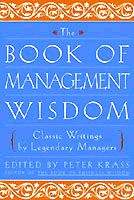 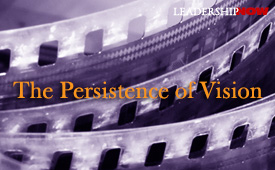
The Persistence of Vision MICHAEL MCKINNEY 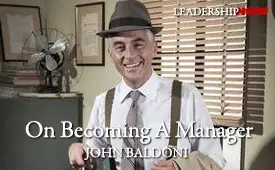
On Becoming A Manager JOHN BALDONI 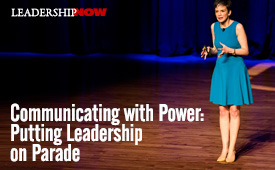
Communicating with Power: Putting Leadership on Parade KEVIN DALEY 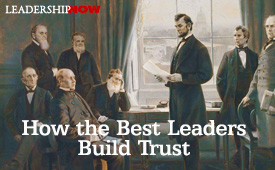
How the Best Leaders Build Trust STEPHEN M. R. COVEY 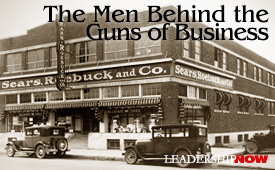
The Men Behind the Guns of Business RICHARD W. SEARS 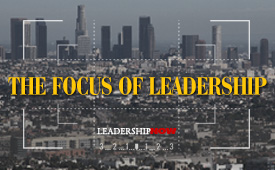
The Focus of Leadership MICHAEL MCKINNEY 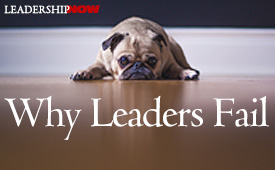
Why Leaders Fail MARK SANBORN |
 |
| ||
 | © 2019 LeadershipNow All materials contained in https://www.LeadershipNow.com are protected by copyright and trademark laws and may not be used for any purpose whatsoever other than private, non-commercial viewing purposes. Derivative works and other unauthorized copying or use of stills, video footage, text or graphics is expressly prohibited. |
||